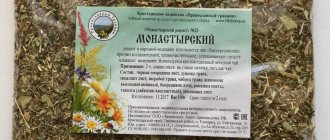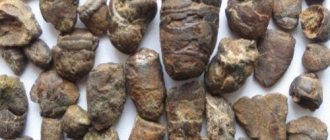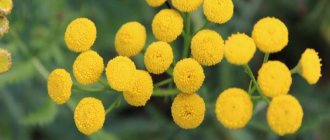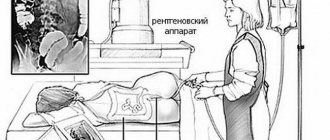The resulting inflammation in the stomach negatively affects the concentration of released hydrochloric acid. Depending on the type of gastritis, therapeutic methods differ. To make the recovery process faster, a complex effect is used.
Traditional medicine involves the use of not only medications, but also the treatment of gastritis with herbs. The patient needs to know which plants and infusions from them can be drunk for stomach inflammation.
Treatment of gastritis with high acidity
With this course of the disease, a high release of hydrochloric acid occurs, which negatively affects the mucous membrane. It is for this reason that the composition of the herbal collection for gastritis with high acidity includes components that are aimed at neutralizing and reducing its secretion. Plants must necessarily have an enveloping and astringent effect.
There are a huge number of such ingredients, but in traditional medicine recipes you can most often find:
- chamomile and calendula;
- dandelion flowers and plantain leaves;
- St. John's wort and peppermint;
- centaury and calamus;
- cucumber and fireweed;
- bird knotweed and watch.
Often these herbs and plants are used to make medicinal tea at home. To do this, you can simply steam them, pour boiling water over them, or boil them in a water bath. After this, the drink is filtered, diluted with warm water and taken several times a day before each meal.
Despite the fact that teas and decoctions have a positive effect, it is best not to use them in severe cases of the disease, in which pathological changes are observed in the mucous membrane of the affected organ. An example is erosive gastritis, during which not only an inflammatory process develops, but also the formation of erosions.
To reduce the concentration of hydrochloric acid, it is best to use the following herbal remedies for gastritis:
- gastric collection , which combines calendula, chamomile, plantain, horsetail, calamus rhizomes, dry corn silk, immortelle, lemon balm, peppermint and yarrow, dill seeds, nettle leaves and St. John's wort. This mixture must be brewed in hot water. For one liter of boiling water you need to take four tablespoons of this mixture. The resulting decoction must be infused for three hours. After this, the medicinal drink is ready for use. You need to drink it before meals, preferably half an hour before;
- basic fee . To prepare it you will need marsh cudweed, birch leaves, dried calendula and chamomile flowers, wormwood and yarrow. After mixing these ingredients, you need to take two tablespoons of the mixture and pour them with a liter of hot water. After which the broth must be allowed to brew for two hours, and then strain it. You can drink this drink after a meal, preferably after two hours;
- simple collection . To prepare it at home, you need to prepare a mixture of chamomile and licorice, fennel fruits and mint leaves. All herbs are taken in equal proportions, one tablespoon at a time. Then pour a small handful of the resulting mixture with hot water and leave to steep for three hours. The infusion should be taken only after meals.
Beneficial properties of gastric collection
When gastritis occurs with a high concentration of hydrochloric acid, gastroenterologists recommend using such decoctions for a certain period of time, which will be individual for each patient. Such herbal preparations will not only help get rid of the symptoms of the disease, but will also prevent the occurrence of exacerbations of chronic gastritis.
Let's sum it up
There are a huge number of recipes that we inherited from our forefathers, which are effective for problems with the digestive tract. Which one will be most effective in your individual case, it is better to consult with your doctor, who will select the “correct” herbal medicine depending on the etiology of the disease.
It is worth noting that with the irrational use of alternative therapy, as well as without following a diet and refusing drug treatment, you may not only fail to achieve recovery, but also aggravate the problem even further. In addition, plants, despite their healing characteristics, may have contraindications and also cause harm to health if their dosage is exceeded.
Treatment of gastritis with low acidity
Gastritis with low production of gastric juice is often observed in a chronic form, because it does not cause such severe symptoms. However, in case of exacerbation of gastritis, it is recommended to use herbal preparations that will normalize the hydrochloric acid level.
The ingredients of such medicinal drinks are:
- yarrow and aloe;
- wormwood and centaury;
- birch buds and lingonberry leaves;
- dandelion and eleutherococcus;
- cumin and St. John's wort;
- chamomile and trifoli;
- mint and calendula.
Some of the above herbs and plants are found in herbal recipes for high acidity. This only means that such components are universal, which is why they can be used for any type of inflammation of the gastric mucosa.
Traditional medicine is rich in recipes for medicinal drinks for gastritis of the stomach with low acidity, which include:
- mint, sage, chamomile, wormwood and yarrow. These herbs need to be crushed and mixed in equal proportions. Two teaspoons of this mixture are poured into a glass of boiling water, then left for half an hour and filtered. You can drink this decoction three times a day. This drink is aimed at stimulating the production of gastric juice, increasing appetite, and also has an anti-inflammatory and enveloping effect;
- rosemary and mint. This mixture is poured with a liter of boiling water and left for two hours. Take the infusion three times a day, one glass. This drink improves the functioning of the gastrointestinal tract;
- dill seeds, centaury, plantain and marshmallow. The entire collection is brewed in a liter of water and allowed to brew for about twenty minutes. You should drink two tablespoons of the infusion before meals. The course of such treatment lasts three weeks;
- dandelion root and flower. They are crushed and poured with cold water, after which they are boiled for ten minutes, cooled and filtered. This drink can only be consumed at room temperature.
These are just the basic recipes for herbal teas, decoctions and infusions that are allowed for use with a similar course of gastritis. All of them are aimed at enhancing the secretion of gastric juice and have an enveloping effect.
St. John's wort
The main property of the plant is the restoration of the natural microflora of the gastrointestinal tract. That is why doctors always recommend drinking St. John's wort for gastritis to all patients. In the treatment of gastritis at home with herbs, St. John's wort actively affects Helicobacter, which is a source of infection and develops an inflammatory process in the stomach. Natural antiseptic:
- removes inflammation;
- restores intestinal microflora;
- relieves spasms;
- eliminates pain;
- removes heaviness in the stomach;
- normalizes digestion.
St. John's wort is a controversial plant. It should be prepared according to this recipe - take a dessert spoon of raw materials, pour a glass of boiling water. Infuse the decoction for about a day, after which take 1/3 cup three times a day. The herbal infusion contains active substances that kill harmful bacteria.
St. John's wort can be included in herbal preparations for the treatment of gastritis. The grass can be combined with other plants. Usually St. John's wort is combined with mint leaves and fireweed. The collection is quite effective and can be drunk 3 times a day. Herbal treatment helps fight gastritis and restores mucosal structures.
Dill and wormwood for gastritis
Herbal treatment for gastritis also involves the use of dill, which is an indispensable aid in eliminating this disease. It helps not only to reduce the intensity of the clinical picture of the disease, but also prevents the transition of gastritis to the erosive form.
Due to the fact that dill contains a large amount of vitamins and nutrients, it improves appetite, rids the body of toxins and helps get rid of increased gas formation.
Sagebrush
For such an ailment, regardless of increased or decreased secretion of hydrochloric acid, it is recommended to drink tea from this plant or drink a decoction based on dill seeds before meals.
Wormwood, in turn, has anti-inflammatory and wound-healing effects, which is why drinking medicinal drinks based on it is not prohibited. Teas and decoctions from such a plant can be prepared not only from the leaves, but also from wormwood powder. They must be drunk strictly before eating.
Contraindications for herbal medicine
Plants that are used against stomach inflammation can be poisonous. In some cases, the patient is advised to refrain from taking decoctions, infusions and tea, due to individual intolerance to the components. You need to know that when using mint tea, a person should not drive a car for several hours. The plant has sedative properties and a hypnotic effect.
You cannot take wormwood in any form:
- during pregnancy;
- a woman who is breastfeeding;
- if there is a problem with the kidneys.
If an overdose or poisoning of the plant occurs, then signs of nausea, vomiting, general malaise and kidney damage occur. Herbal infusions are not recommended for people who suffer from acute pain and dyspeptic syndrome. Herbal medicine is contraindicated if the diagnosis of gastritis is inaccurate or if other gastrointestinal diseases are detected.
Herbs should be used with caution in the following cases:
- during self-medication;
- if your health condition worsens.
For a pregnant woman, the attending physician individually selects medicinal herbs. It depends on the stage of pregnancy and other diseases.
Side effects of herbs
Like any other medicine, herbs, if used in large quantities at home, can cause side effects. Plants that cause them include:
- St. John's wort and cucumber - they cause a narrowing of blood vessels, which entails a decrease in blood pressure;
- wormwood - with prolonged use can cause seizures or hallucinations;
- licorice – promotes an increase in blood pressure and the appearance of swelling;
- yarrow - can cause attacks of severe dizziness, the appearance of a rash on the skin and a decrease in blood pressure.
It is strictly prohibited to use any herbal remedies at home while carrying a child or while breastfeeding the baby.
It is for these reasons that only the attending physician can prescribe herbs for the treatment of gastritis.
What causes stomach pain?
The causes of stomach pain can be different:
- food poisoning;
- intestinal infection H. pylori;
- poor nutrition;
- bad habits (alcohol, smoking);
- medications that are too strong;
- genetic predisposition;
- autoimmune processes;
- duodenal reflux;
- hormonal disorders;
- pregnancy;
- stress.
Some diseases stand out as a separate item:
- ulcer;
- gastritis;
- colitis;
- dyspepsia (obstruction) of the intestine;
- appendicitis.
About gastritis
Gastritis is an inflammation of the gastric mucosa, accompanied by disruption of its functioning. Because of this, food is poorly digested, and this leads to a lack of energy and strength.
Gastritis can pose a serious health risk if left untreated
In addition to inflammation, irritation or erosion of the gastric mucosa may occur.
Types of gastritis
There are two types of gastritis, which differ from each other in symptoms, nature of manifestation and causes of their occurrence:
- acute (this type is an exacerbation of chronic gastritis);
- chronic.
Table No. 1. Differences between acute and chronic gastritis
| Acute gastritis | Chronic gastritis |
| Develops as a primary disease | Manifests itself as a secondary disease |
| Manifests itself immediately in the form of acute pain | Undulating and slow development, manifestation in the form of aching, weak pain |
| Treatment is easy | It's hard to get rid of |
| Quickly detected | Doesn't show itself for a long time |
Symptoms of gastritis
The symptoms of this disease are different: they depend on what type of gastritis the patient has, what the level of stomach acidity is, whether there are other gastrointestinal diseases and whether complications have arisen. The main symptoms that occur in patients are:
- nausea;
- vomit;
- loss of appetite;
- heartburn;
- belching;
- flatulence;
- edema;
- severe abdominal pain.
Gastritis is a disease with a large number of symptoms.
The difference between gastritis and ulcers
It is worth noting that people often confuse the symptoms of gastritis and stomach ulcers. Knowing the information in the table below will make it easier to distinguish between these two diseases.
Table No. 2. Differences between gastritis and stomach ulcers
| Gastritis | Stomach ulcer |
| May bother you at any time of year | Appears mainly in autumn or spring |
| Symptoms are felt all the time | Symptoms are especially severe at night |
| Discomfort is felt in the epigastric area | Pain is felt in the back, side, above the navel, etc. |
| Pain occurs three to four hours after eating | Pain appears within an hour after eating |
First aid for stomach pain
To temporarily get rid of stomach pain caused by gastritis, you can take the following measures:
- increase the amount of clean water consumed and completely eliminate coffee;
- take activated carbon, propolis tincture, green tea, teas with mint, chamomile, coriander;
- if necessary, take medications such as Ranitidine, Espumisan and Spazmalgon - they relieve the symptoms of gastritis.
These remedies will help you get rid of discomfort temporarily, but you should not rely on them alone - after your health has improved, you should consult a doctor as soon as possible.
Medicinal herbs and their uses
- The following plants help reduce autoimmune aggression: elecampane, celandine, poisonous fighter, and so on. Moreover, celandine is also a strong pain reliever. It is important to know that it is very poisonous, so you need to add a small amount to the mixture (from a quarter to half a teaspoon per glass).
- The following have an anti-inflammatory effect: alder buds, blue cornflower, sage, coltsfoot, fireweed, kolgan, calendula, horsetail, small-leaved linden, sweet clover and others.
- To protect the mucous membrane, plants with enveloping properties will be required. These are common flax, wild mallow, sea buckthorn oil, lungwort, bifolia, oats, marshmallow, angelica, and great plantain. The latter is successfully used for gastritis with low acidity, as it has many properties: analgesic, anti-inflammatory, enveloping, increasing acidity and others. Decoctions or infusions of these plants help get rid of heartburn. And the most common recipe for heartburn is using calamus powder. For your appointment you need to take 1/2 mustard spoon.
- Herbs for gastritis that have an analgesic and antispasmodic effect: peppermint, tansy, marsh grass, belladonna, chamomile, common hop, wild rosemary. Representatives of the umbelliferous family help well: fennel, dill, cumin, anise. Their seeds are used for decoctions.
- Antibacterial properties of wild rosemary, creeping thyme, St. John's wort, marsh calamus, common yarrow and others.
- Plants with a high bitterness content will help strengthen gastric secretion and increase acidity: gentian grandiflora, plantain, wormwood.
- Appetite stimulants - calamus, trefoil, yellow gentian, dandelion, sunflower.
- Aloe arborescens, stinging nettle, Kalanchoe pinnate, shepherd's purse, and so on have regenerative (restoring the integrity of the mucous membrane) properties. Potato juice is also good for treating the stomach. It also has healing properties, plus it protects the mucous membrane, reduces acidity, and relieves pain. The juice is squeezed out in any way; fresh washed potatoes are used to prepare it. Drink only freshly squeezed juice, half a glass per meal, 30 minutes before meals.
- Plants that have a calming effect. Since relapses of gastritis can provoke stress and nervous overstimulation, plants with sedative properties must be included in herbal mixtures. The more common of them are oregano, lemon balm, wild rosemary, peppermint and others.
Combining plants into herbal infusions increases the effectiveness of herbal medicine many times over, since the properties of different plants complement each other, enhancing the results obtained.
Treatment of stomach cancer
For stomach cancer, it is worth combining traditional medicine with folk methods. There is no need to give up medications. Together, you will have a better chance of recovery. One of the most common symptoms of stomach cancer is vomiting. Therefore, all the first actions of medical specialists are aimed at getting rid of this reflex. This is done to be able to begin treatment so that the patient can calmly take the prescribed medications or infusions.
Important to remember! After each course of treatment, a five-day break is required.
Celandine
The herb celandine, which is poisonous, has become famous in this area. Therefore, when taking it, you should strictly observe the dosage and not increase it yourself, hoping for a speedy result.
Recipe:
- you need to cut the leaves and stems of the plant into a 1 liter jar;
- fill them with alcohol to the top, leave to infuse for 4 weeks in a cold place;
- filter and the tincture is ready for use.
Major intestinal diseases
Functional disorders of the intestines include nervous dyspepsia, dyskinesia, intestinal dyspepsia, irritable bowel syndrome, and spastic constipation. What all these diseases have in common is that they cause a malfunction in the process of absorption, motility and secretion of the colon. In this case, the mucous membrane remains practically unchanged.
The causes of the disorders are different: stress, alcohol and nicotine abuse, asthenic syndrome. Disturbances can occur after operations, due to urological, gynecological diseases, peptic ulcers, due to parasitic, infectious effects. Very often people experience abdominal pain, bloating, and upset bowel movements.
What herbs to drink to reduce acidity
Herbs that are used to reduce stomach acidity:
- sage;
- gentian root;
- cinnamon;
- mint.
A decoction is prepared from the collection of these herbs. All components are taken in equal parts. The mixture (1 teaspoon) is steamed with hot water (250 ml) and allowed to brew. The course of therapy is 2 weeks. Drink the infusion in the mornings and evenings, 1 glass.
You can also use mint separately. To do this, brew tea with mint. It is recommended for hyperacid stomach acidity.
St. John's wort is a good remedy for increased stomach acidity due to gastritis. This plant helps eliminate inflammation caused by the bacterium Helicobacter pylori. St. John's wort, as well as mint, is used to make tea.
Treatment of intestinal dysbiosis
Traditional therapy is ready to cope with almost every disease. Dysbacteriosis is no exception. The causes of this disease are:
- antibiotic treatment;
- the presence of gastritis and pancreatitis;
- work in the production of antibiotic drugs;
- the presence of infections in the body, stress.
Dysbacteriosis is accompanied by such symptoms as diarrhea, bloating, gas formation, and weakness. To treat this disease, it is necessary to clearly understand the cause so that there is no relapse and follow proper nutrition. Herbs for treatment should be chosen according to their properties, in this case you need:
- anti-inflammatory (relieve inflammation of the mucous membrane);
- enveloping (protects the mucous membrane);
- antimicrobial (restore microflora);
- laxatives (for constipation);
- fixative (for diarrhea).
Oak bark
For example, for diarrhea, you can brew an infusion of oak bark. Oak bark has a healing effect and relieves inflammation.
Recipe:
- 1 tbsp. l. oak bark, pour 0.200 liters of boiling water and place in a water bath for a quarter of an hour.
- Then let it sit for 45 minutes.
Dill
And if one of the accompanying symptoms is constipation, then it is better to use another method.
- 4 tsp. pour 200 ml of boiling water into a glass or enamel container with a lid;
- let it sit for 3 hours, wrap it in a warm blanket.











